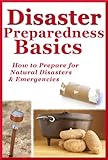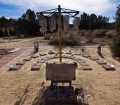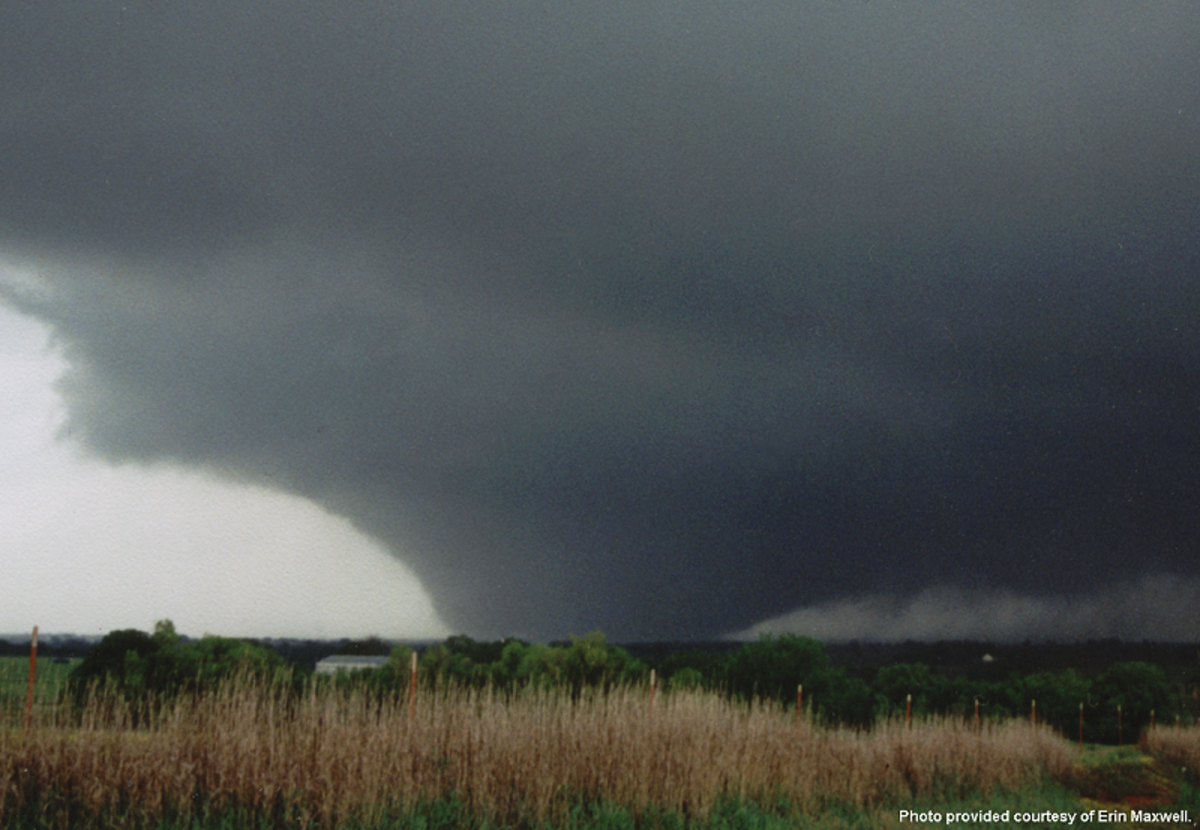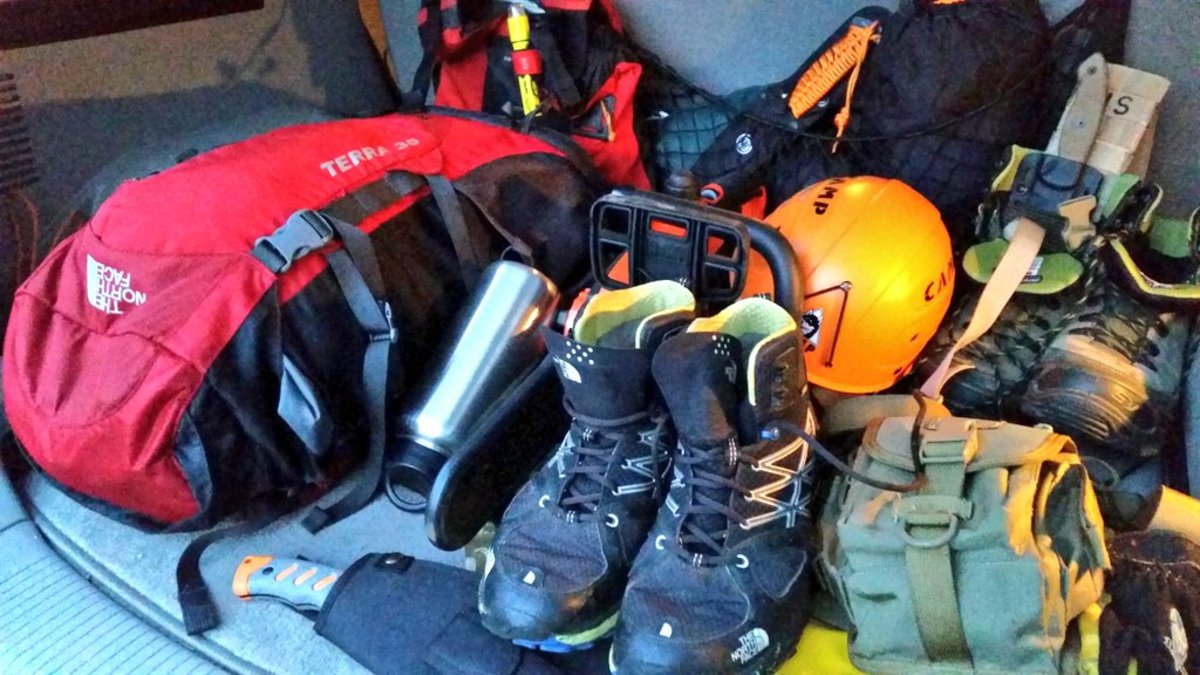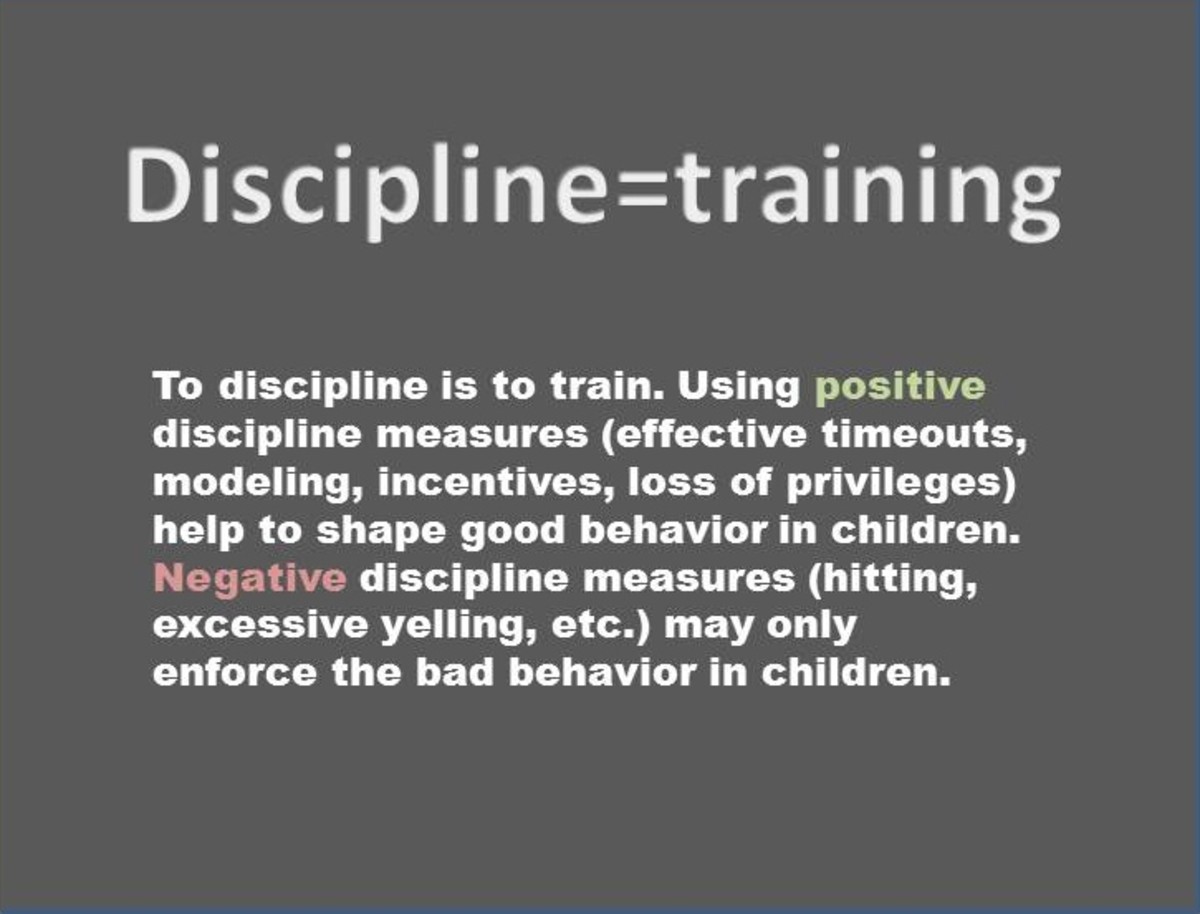Disaster Preparedness Plan
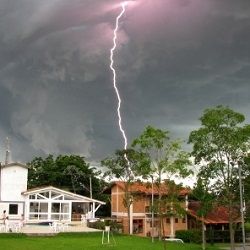
Have Your Family Ready if Disaster Strikes
If you live in an area that is frequented by hurricanes, tropical storms, tornadoes, earthquakes, or ice storms then you really need to have a disaster preparedness plan in place.
I live in an area that is prone to tropical storms, tornadoes, and power outages. On this lens I offer advice and products that have proved to be essential to keeping my family safe during the many storms we have weathered (including hurricanes Rita and Ike). Below you will find a practical guide to help ensure that you and your family are prepared when disaster strikes.
Every family needs a disaster preparedness plan. If you don't have one, you really should start preparing today.
Image courtesy of [image creator name] / FreeDigitalPhotos.net
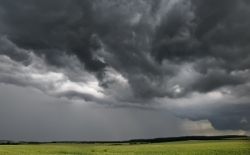
We Needed a Disaster Preparedness Plan
Protecting my family during a disaster is why I made this page
Though we live in Texas which is known to be warm, the worst disaster we've had in my community was a terrible ice storm. Ice can cripple entire cities here because we aren't prepared for those types of conditions. The ice weighed down tree limbs, causing them to snap off and knock down numerous power lines. As a result, we were without power for 14 days with temperatures under 35 during the day and around 15 during the night. Since we aren't used to cold temperatures here, we didn't have a fireplace or other nonelectrical means of heat. To make matters worse, while most Texans have coats, we don't have heavy coats like people from colder climates do and we definitely don't have wool sweaters or long johns. I remember 14 nights of snuggling up to my husband under all 5 blankets that we owned and 2 shirts under 2 sweaters with a coat on over that. The warmest pants I owned were jeans. So, on my legs all I had were pantyhose under some blue jeans. It was absolutely miserable. Few people in my area were prepared for such a cold snap with no heat.
The stores were insane. Every generator in town sold out in the first day. Since many pipes froze, grocery stores sold out of water the first day too. Next to go were all nonperishable foods that don't require cooking. People were so desperate that some were snatching food and water out of my shopping cart!
I have lived in Texas for fifteen years now, and while I'm used to having to deal with tornadoes and violent thunderstorms, I was shocked to discover with Hurricane Rita that I live close enough to the coast to be severely affected by tropical storms, and we live more than a five hour drive from the ocean. A few years after the terrible ice storm we found out Hurricane Rita was heading straight for us. Sure, she was going to be down graded to a tropical storm by the time she got here. But, the news was telling us to prepare for an extensive power outage again and to prepare our homes as best we could. The entire town was in a panic again because the ice storm was all fresh on our minds. Just hours after the news announced Rita was heading for us (days before impact), there wasn't a generator left in town. The stores were packed again with people scrambling for nonperishable foods and water. I ended up driving all over town just looking for water.
People were driving like maniacs. I passed several wrecks on the way home. That's when I learned that not being prepared for disasters causes a heightened sense of panic. I think most of our citizens learned the same lesson too, because three years later with Hurricane Ike heading for us, people went shopping and worked to prepare, but weren't nearly in the same state of panic they were with Rita. Days before Ike hit our town, most of our citizens had already stocked up on water, nonperishable food, candles, and matches and were all prepared to weather the storm.
I learned so much with the ice storm, Rita, and Ike. I could see how important it was to have a disaster preparedness plan in place for my family. I learned how important it is for all of us to have enough food and water on hand to see us through several days if an unexpected disaster arose. Here you will find all the information you need to develop an effective family disaster plan.
Image courtesy of [image creator name] / FreeDigitalPhotos.net
Have You Lived Through a Natural Disaster? - Have You Survived a Natural Disaster?
Have you survived a hurricane, tropical storm, tornado, severe thunderstorm, or an earthquake? Share your experience here.
Have you survived a natural disaster?
Forming Your Disaster Preparedness Plan
Develop your family disaster plan
You need to sit down with your family and talk about what you will do during the event of a natural disaster. Plan ahead for the kinds of disasters that are possible in your area. Be sure every member of your family knows what to do and where to go to stay safe.
- Decide where to meet if something unexpected happens. Set up a designated room to meet in if a storm suddenly strikes. Also, be sure all of your family members know what to do in case of a tornado warning. In the event of an approaching tornado, you will not have time to organize everyone.
- In the event of a huge disaster in which your home might be wiped out, have a designated contact. If you have a friend or family member that lives out of the area, make sure your whole family memorizes their number. If you get separated, you can all contact this designated person.
- Keep nonperishable food items and bottled water on hand at all times. That way you don't have to deal with the chaos at the grocery stores when everyone knows a hurricane or some other disaster is on its way. Be aware of the expiration dates on these items and when they are close to expiring go ahead and consume them (as not to waste money) and replenish your supply.
- Be sure to always keep necessary medications on hand. If you require prescription medications never procrastinate getting them refilled. You never know when an emergency can catch you by surprise.
- Always have plenty of first aid supplies on hand. Also, be sure everyone in the family has their Tetanus shot up to date. Originally it was recommended to have one every 10 years. Now doctors are saying they are only guaranteed to be good for 7 years.
Disaster Preparedness Plan Guide - Great family disaster plan advice
This book is a great resource for developing your family disaster plan. It's available in either paperback or Kindle format. You can click to read the over 300 positive customer reviews.
Disaster Preparedness Information - Survival guidebooks
Do You Have a Family Disaster Plan? - Are You and Your Family Prepared?
Have you sat down with your family and put together a family disaster plan? Are you prepared for a power outage with candles, matches, nonperishable food, wind up radio, etc?
Do you have a family disaster plan?
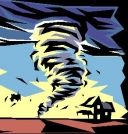
Tornado Safety
Safety Tips for Surviving a Tornado
The most important ingredient to staying safe during a tornado is information. You absolutely need to stay informed during severe weather. Stay close to your radio or television and if your area is placed under a tornado warning, take the necessary precautions immediately. When it comes to tornadoes, it's better to be over prepared than caught off guard.
If you are unable to listen to the news during severe weather, the following are warning signs of a tornado:
~The sky turns an intense green to greenish black.
~It suddenly gets spooky and quiet in the middle of a thunderstorm.
~If your area is under a tornado watch and it starts to hail.
~If the weather feels "heavy" and the leaves on the trees turn upside down.
~If during a thunderstorm debris starts to fall from the sky.
~The forming of a wall cloud.
As a tornado approaches, you may hear a sound similar to a waterfall and as it comes closer it will turn into a loud roar.
To survive a tornado:
- If you are in a car, get to the nearest shelter immediately. A tornado can blow a car off a road, pick a car up and hurl it, or tumble a car over and over. Many people have been killed in cars while they were trying to outrun the tornado. If there are no nearby shelters, an underpass may seem like a safe place, but it is not. While videos show people surviving under an underpass, those tornadoes have been weak (if they had been strong the camera would have been ripped from their hands). No one knows how survivable an underpass is in a strong or violent tornado. The debris flying under the underpass could be very deadly. Instead, head for a ditch. During a tornado, you are safer crouched in a ditch than you are sitting inside your car.
- The safest place to be is underground in a storm shelter or basement. If you can, get under the stairway or a heavy work table and cover your family with a quilt or comforter to protect against flying debris.
- If your home has no basement or storm shelter, which unfortunately most homes in the southern portion of tornado alley don't, then the next best place to be is in a small, windowless, first floor, interior room like a closet or bathroom that is the closest to the center of your home as possible. The bathtub and commode are anchored directly into the ground, and sometimes are the only thing left intact after a tornado. Getting into the bathtub with a couch cushion, blanket, or pillows over you gives you protection on all sides, as well as an extra anchor to the foundation. Plumbing pipes may or may not help hold the walls together, but all the extra framing that it takes to put a bathroom together may make a big difference. If there is no downstairs bathroom and the closets are all jam-packed, a hall may be the best shelter. Put as many walls as you can between yourself and the tornado.
- If you are in a high rise building, stay in an interior room or hall. Central stairwells are good, but not elevators. If the building loses power, you may be in the elevator for a long time. Stay away from glass walls and windows, no matter how small they may be.

Severe Thunderstorm Safety
Safety Tips for Staying Safe During a Severe Thunderstorm
I live in an area that frequently gets severe thunderstorms. A severe thunderstorm can produce damaging straight line winds, heavy downpours, deadly lightening, hail, and even tornadoes. If your area is put on a severe thunderstorm warning, take it very seriously and prepare to keep you and your loved ones safe.
If you are in a car during a severe thunderstorm and there is NOT a tornado (remember you never want to stay in a car during a tornado):
~Stay calm and if the wind and rainfall allow you to continue driving, slow down, be sure your lights are on, turn off your radio, and focus on the road.
~If you cannot see the lines on the road due to the rain, or if the wind is pushing your car around, drive very slowly until you can safely pull over. When you reach a safe place to pull over, do so and wait until it's safer to drive.
~If it begins to hail, stop at the first building you can and get inside. If there isn't a building nearby you can go inside, try to stop under an over pass. Hail can bust through your windshield and seriously injure or even kill you.
~Be sure to regularly treat your windshield with a product such as Rain X so that the rainwater interferes with your visibility as little as possible. Also, make sure that your windshield wipers are in good shape. You don't want to discover that your windshield wipers are worn during a torrential downpour.
If you are home during a severe thunderstorm:
~Be sure to stay away from your windows. Sudden gusts of wind can blow debris through your windows. It's also a good idea to stay away from your windows if it is hailing or lightening. If it is hailing and you have blinds, close them all. If a hail stone breaks through the window, the blinds will provide added protection from the broken glass.
~Do not take a bath, shower, or wash the dishes while it is lightening. It is rare, but lightening can strike the underground pipes and electrocute you.
~Stay informed with the radio or television so you know if a tornado is forming or heading your way. During a heavy downpour, a tornado can approach without you seeing or hearing it until it's too late.
Hurricane Safety - Links to Hurricane Safety Information
The one positive thing about hurricanes is that they form and move slowly. This gives you plenty of time to prepare for an approaching hurricane. You should always take any hurricane warning very seriously. Even a weak hurricane can cause flooding, power outages, and property damage.
- Hurricane Safety Tips
Pre-Season tips as well as what to do before the storm, during the storm, and after the storm. - American Red Cross Hurrican Awareness
Great advice and tips from the American Red Cross. - SEMO Hurricane Safety
NY State's SEMO hurricane safety tips. - Preparing Your Yard for a Hurricane
Preparing your yard before a hurricane can help prevent costly damage. - Hurricane Survival Kit
Be prepared.
Earthquake Safety Tips - Links to Earthquake Safety Information
If you live in an area that can receive earthquakes, you need to know what to do in the event of one. They strike without warning, so you should always be prepared. It is a good idea for everyone to know how to stay safe during an earthquake. Sometimes surprise locations have one. Dallas, Texas had a small one a few years ago that caught everyone off guard.
- Earthquake Kare
What to do before, during, and after an earthquake. - Earthquake Safety Tips
A little knowledge and a few precautionary measures can enormously increase your chances of surviving an earthquake - or any other type of hazard. - Earthquake Survival
What to do as soon as the ground starts to shake. - American Red Cross Earthquake Survival
Earthquake survival guide from the American Red Cross. - Earthquake Do's and Don'ts
What to do and what no to do to stay safe during a quake.
Disaster Preparedness Supplies
Below you will find a selection of emergency supplies that are great to have during a power outage. While it's great to have a couple traditional battery operated flashlights and candles, during a long power outage the wind up lights, radios, and cell phone chargers are almost a necessity.
Crank / Wind Up Flashlights - Never Be Without a Light
These are great options for areas that can go without power for days. LED light bulbs are super bright, never need replacing, and use less power than a traditional bulb.
Crank Radios - Keep Up to Date and Have a Source of Entertainment During a Power Outage
During Hurricane Ike we were without power for 15 hours. It starts to get really boring after a while. We sure did enjoy having a crank radio. We could keep up to date with the latest news and listen to music.
Power Generators - Be the Envy of Your Street when the Power Goes Out
Keep your small appliances running during a power outage. Imagine to be able to use your toaster oven, electric grill, and more when the electricity goes out for days.
Helpful Links - Links to Other Disaster Plan Resources
- American Red Cross Disaster Plan
Families can–and do–cope with disaster by preparing in advance and working together as a team. Follow the steps listed in this brochure to create your family’s disaster plan. - Hurricane Preparedness
Family disaster plan information for hurricane victims. - FEMA's How to Plan for Emergencies
Information from FEMA to help you plan ahead for emergencies.



